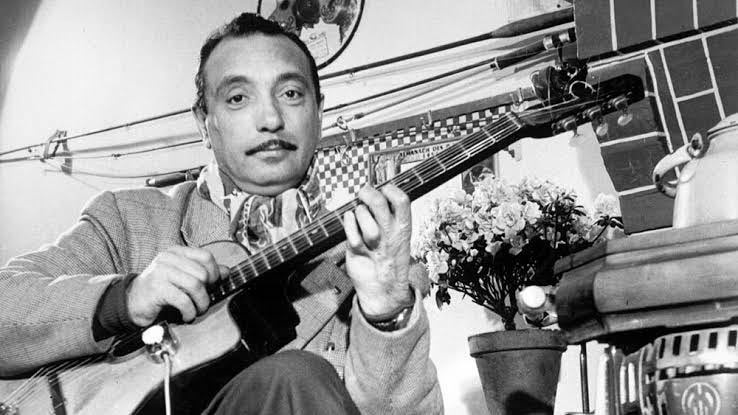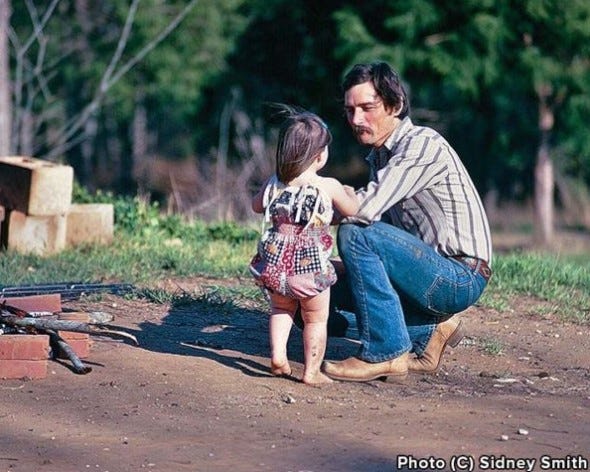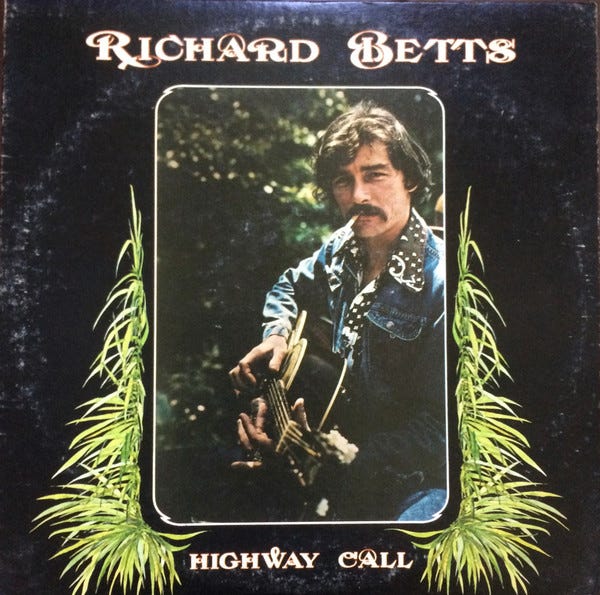Dickey’s Instrumentals (part 2): Jessica, Hand Picked, High Falls
Django Reinhardt, western swing, and Betts at the ABBsolute peak of his powers
Greetings from Music City USA. I just returned from a 10-day trip to Germany with my family.
I knew I’d be awestruck by the history I encountered, but I genuinely didn’t realize how much impact it’d have. Everything from cathedrals and castles to the ever-present memory of the Nazi and Cold War eras.
While there, I thought a lot about Django Reinhardt, one of the most influential guitarists in the world, also inspiration for one of Dickey’s most beloved instrumentals, “Jessica.”
Why Reinhardt came to mind.
Part of it has to do with my fascination with the ways people engage in public memory.
I have spent most of my adult life working in local history, mainly museums and historic sites. Local history plays out in the public arena in a variety of ways, the most notable being monuments and memorials. It’s something I’ve written a considerable amount on over the years. 1
Germany offered countless opportunities for me to reflect on my interest in/love of how communities wrestle with the good, bad, and ugly of the past.
The tiniest memorials were among the most moving. I encountered countless stolpersteine,2 small memorials honoring the victims of Nazi Germany with a commemorative brass plaque in the pavement in front of their last address of choice. I found them in each city we visited and paused to reflect at each one, reading the translation on my phone.
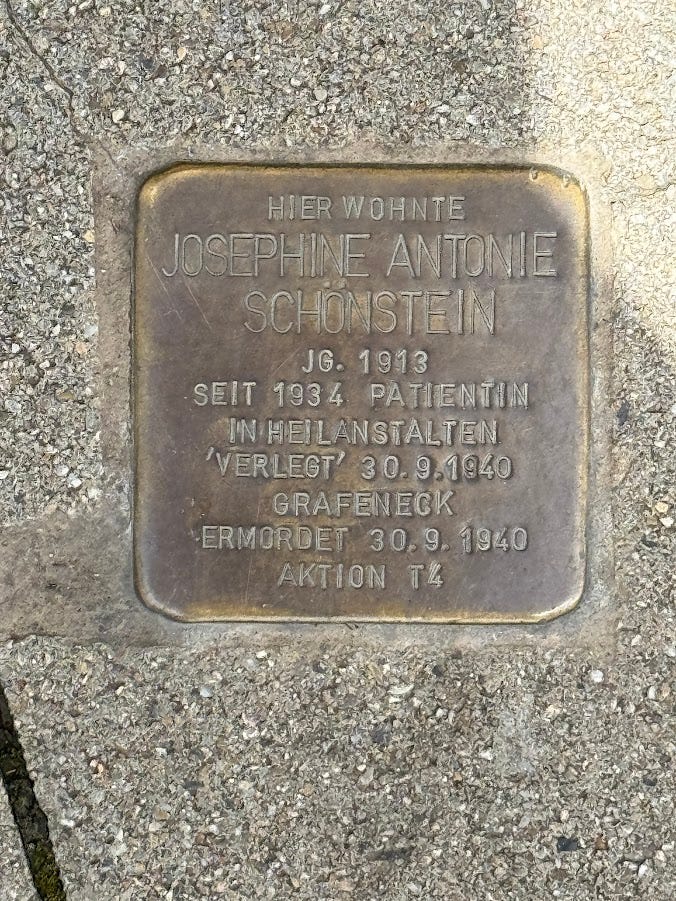
Berlin brought something new—public memory of something I lived: the Cold War. The Berlin Wall is forever etched in my mind’s eye as a symbol of the repressive Soviet Union. I grew up thinking of East Germany as a black and white authoritarian dystopia.
Here’s the view from East Berlin—one of the few remaining segments of the wall in its original spot at the Topography of Terror monument.3 This is a video I took around 10:30pm on our last day in the city. We were standing in what was called the “Dead Zone” between the inner and outer wall. It was eerie. And I’m grateful the wall came down.
We stayed in an apartment in the former East Berlin, a stone’s throw from the Berlin Wall—a symbol of such division in my youth. I was ABBsolutely fascinated being in a place that was so beyond my reach before November 9, 1989 when I watched this happen from my freshman year dorm at the University of Central Florida.
But it wasn’t just the wall that Berlin really commemorates well.
I found in Berlin a genuine willingness to look carefully at the past for the sake of better understanding the present. This was evident in everything from the DDR Museum, the Humboldt Forum, and myriad panels across the city telling various elements of its past.
I’ve got a lot more to say on the whole visit. Suffice it to say that I was moved and inspired by how Germans, particularly Berliners, grapple with the present that the past has given us.
Back to Django
Of the many horrors of the Nazi era was persecution of anyone they perceived as different. Jews, queers, the disabled, anyone they considered “unpure”— including the Romani people4—pejoratively referred to as gypsys.
Each time I encountered that part of the story brought to mind one of Dickey’s inspirations: the great Romani jazz guitarist Django Reinhardt.5
And that brings me to the second in a series of a discussion of Dickey’s instrumentals. In Part 1, I wrote about “Liz Reed” “Les Brers” “True Gravity” and “Kind of Bird.”
Today I’ll cover “Jessica” “Hand Picked” and “High Falls.”
(All quotes are Dickey’s unless otherwise noted.)
Jessica
“Jessica” is Dickey’s homage to Reinhardt. He named the song for his daughter with Sandy Bluesky Wabegijig. It appeared on Brothers and Sisters in 1973.
Betts sought out to write something Django-esque, a melody to be played on just the first two fingers of his left hand.6 As he was writing, two-year-old Jessica bounded into the room. Dickey started playing along to/with her.
“I had a melody for this instrumental, I could hear it in my head, but I couldn't express it. Then Jessica came in the room and she's toddling around knocking beer cans over and getting into ashtrays and I just started playing to her and it came together.”7
What he played evolved into what
calls “the world’s happiest song.”The mood was intentional.
I was trying to get that Django Rhinehart kind of bounce. So that was the imagery I had in my mind, and when Jessica came into the room, I tried to capture that feeling, and it gave it that happy feeling.8
Dickey on his approach:
When I write an instrumental piece of music, I try to keep the audience firmly in mind. I like to imagine that they are right there in the room with me, listening to the piece of music as it progresses. This is one of my most valued considerations while I am developing a song. I'll be thinking
“How will someone receive this? How will each element affect the person who is listening to it?”
Keeping this concept in mind offers me a highway to follow, however intangible it may be. This frame of mind creates an ideal as to how I imagine the music will make the audience feel, and that ideal guides the creative process.
A good instrumental will take the listener on a journey; the way I keep an adherence to the path of the journey is by staying aware of where the audience is being taken as the song progresses. And that is really the whole reason for writing the stuff in the first place.9
Beyond the Django inspiration, “Jessica” also carries more than a hint of another key element of Dickey’s development: western swing.
And that brings me to the next track on this list.
Hand Picked
“Hand Picked” was the first song on side B of Dickey’s 1974 proto-Americana album Highway Call. At 14:20, it’s the second-longest instrumental in Dickey’s arsenal. (And it kind of has to be given how many solos are in it.)
Dig the three-part harmony in the intro: guitar, fiddle, and pedal steel with Chuck Leavell holding it down on piano. Then two rounds of solos each from, in order, Dickey, Vassar Clements (fiddle), John Hughey (pedal steel), Chuck. The song closes with killer improvised (?) outro jam between Dickey, Vassar, and Hughey.
“Hand Picked” is a little bit Django, a little bit Bob Wills, and a whole lotta Dickey Betts.
It’s a fun listen and a great ride.
Highway Call is one of the hidden gems of the Allman Brothers Band catalog. Dickey truly following his muse. The world needed at least one more Highway Call from Dickey in this era.10
That album was done strictly for fun. We were making a lot of money with the Allman Brothers Band, and we had some time off, and I just wanted to do a fun record. Get a bunch of guys I know and have some fun.
The original idea for that was, I was going to do more of a country jazz kind of thing with Stephan Grapelli.11 But he will not fly. He would only go by steamship, and hell, he wasn't going to be over here for six months. I was going to have to go to Paris if I wanted to record with him.
Dickey changed tack when he ran into fiddler Vassar Clements at a bluegrass festival in Florida. The collaboration resulted in Highway Call.12
I wrote “Hand Picked” especially to play with Vassar. We had John Hughey on steel guitar, who had played with Conway Twitty and Jeff Hanna from the Nitty Gritty Dirt Band.13 I would run into these guys on the road and invited them to make that record. We had Tommy Talton from Cowboy and there was a bluegrass band, the Poindexters.
High Falls
“High Falls” is the longest instrumental in the catalog. Released on the otherwise desultory Win, Lose, or Draw (1975), “High Falls” is an ideal representation of the Chuck/Lamar era band. A Dickey instrumental written specifically for this lineup and everyone—everyone14—shines.
Dickey named the song for the Georgia State Park northwest of Macon where he composed it. The tallest waterfall in middle Georgia, High Falls is not one of those thundering waterfalls. It’s long and flows gradually, much like the song itself.
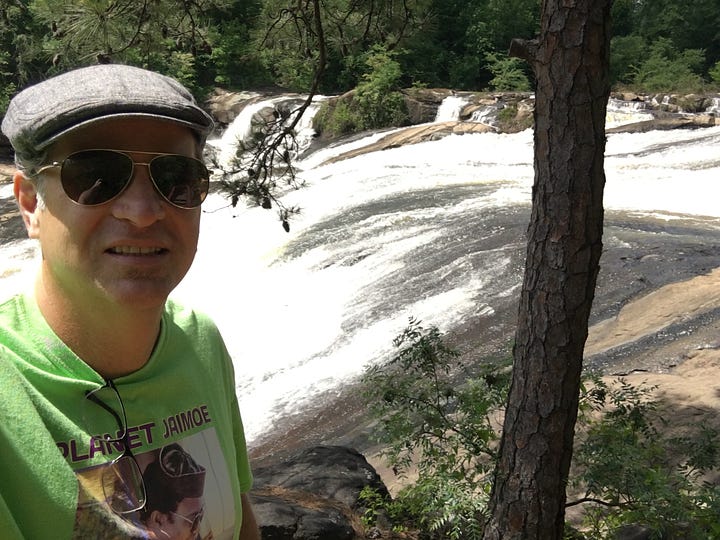
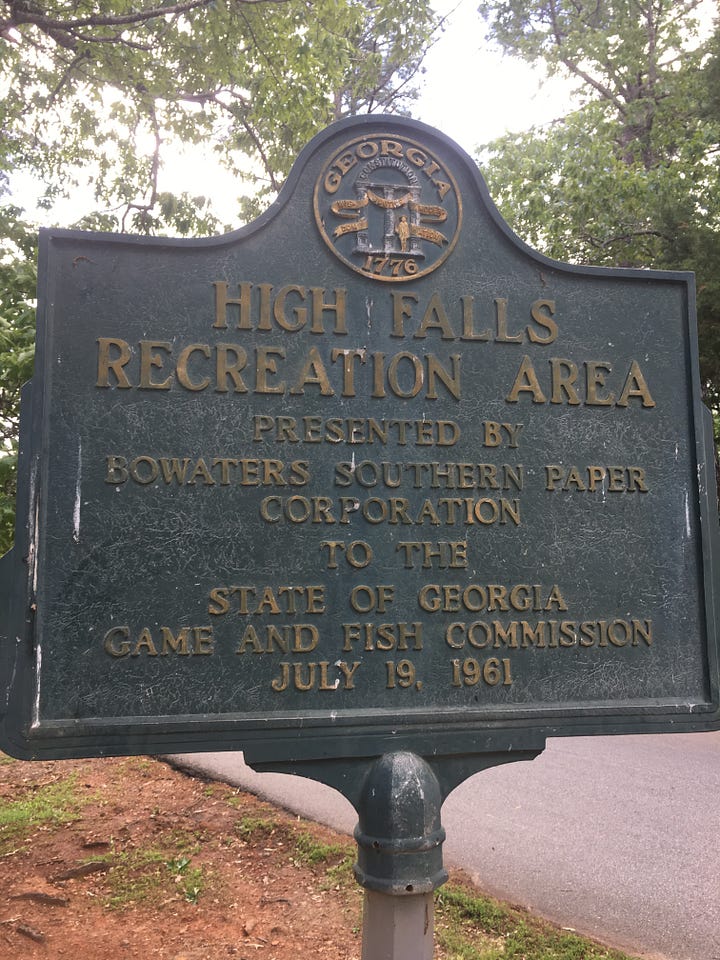
“High Falls” is like a classical composition, with an extended intro and multiple movements.
The opening section flows like the head of the falls; the song unfolds as the Towaliga River cascades along the rocks. It ebbs and flows, with beautiful solos from Leavell and Betts. Undergirding it all is a rock-solid rhythm section anchored by childhood friends Jaimoe and Lamar Williams.
"High Falls” was written at High Falls. I was there with Nick Nolte and Don Johnso, and they were doing a movie called Return to Macon County. I was hanging out with them, and I had my guitar of course. There was a lot of time that I wasn't doing anything, so I just sat down there beside that falls and wrote “High Falls.” If you drive way back in there, there's a beautiful waterfall back in there."15
“High Falls” is my second favorite ABB instrumental. A gorgeous piece of music played beautifully by a band that was fraying at the seams. A year after the album’s release, the band broke up.
Though Dickey played “High Falls” with his solo band Great Southern, the song fell out of the rotation from 1976 through 1997, when the band busted it out at Warren & Woody’s final Beacon run.
It stayed in setlists for 3 years and 3 different guitar tandems: Dickey and Jack (1997-99); Dickey and Derek (1999-2000); Derek and Jimmy Herring (summer 2000). It got one official release, on Peakin’ at the Beacon (2000). It’s not one of my favorite versions.
Random notes
Dickey’s naming convention is really cool and very personal. He named “Jessica” for his daughter who inspired the song and “High Falls” after the place where he wrote it. And “Hand Picked” is a pretty clever play on words for a song he wrote especially for Vassar Clements.
Speaking of, my dude Marley Jay helped me track down more on “True Gravity,” which I’d mentioned in Part 1 had a connotation to golf. Turns out my memory was partially right. Here’s Butch in Modern Drummer in 1993:
The title of "True Gravity" is taken from Golf in the Kingdom by Michael Murphy. Dickey Betts and I play a lot of golf while on the road, and Golf in the Kingdom is quite a remarkable book that Dickey turned me on to some time ago.
Your "True Gravity" refers to the state of mind and body you achieve when you are totally in harmony with yourself and nature. It's that place we can occasionally reach when the band and audience are really in sync—and it's the element of playing with the Allman Brothers Band that I cherish.
Lagniappes
Joscho Stephan Trio “Jessica”
“Jessica” in the style of Django Reinhardt. Kudos to Stephan and his band for his KILLER arrangement. DON’T MISS THIS. Trust me, I’m a doctor.16
“High Falls” from 7/2/98 featuring the great Jack Pearson
Vassar Clements “Jessica”
From Vassar’s 1977 album The Vassar Clements Band
Thanks for reading
Thus far I’ve covered seven Dickey instrumentals from a 12-song playlist I pulled together when I got the news of Dickey’s death.
Still to come are “Pegasus” (1979) “From the Madness of the West” (1981) “Duane’s Tune” (1988) “One Stop Be-Bop” and “Beyond the Pale” (both from 2000).
Keep on truckin’ y’all.
I appreciate you being here more than you know. Or you probably do, ‘coz that’s why you’re here. 🍄
Long live the Allman Brothers Band!
History/memory is a really important distinction for historians and, frankly, citizens as a whole. In addition to what I’ve written on Substack I’ve recently published “No Sooner Was It Over, than the Memory Made It Nobler” in Controversial Monuments and Memorials (2023).
Read more about this incredible initiative of remembrance at stolpersteine.eu.
At the site of the Nazi Gestapo headquarters https://www.topographie.de/en/.
From the Holocaust Encyclopedia: Roma are a European ethnic group whose ancestry can be traced to modern-day India and Pakistan. In many languages, Roma are often referred to by exonyms (names or labels assigned to a group or place by outsiders). In English, this word is “Gypsy,” which is generally considered derogatory. During the Nazi period, German authorities and their allies throughout Europe subjected entire Romani communities to systematic racial persecution. Romani communities across the continent were decimated.
Unlike up to a half-million of his fellow Roma, Reinhardt survived the Nazi era.
Reinhardt lost use of his ring and pinky fingers in a fire.
From “A Conversation with Dickey Betts at the Rock & Roll Hall of Fame” 1996. No longer online.
The Collectors #1 from 2002 captures a similar vibe. More Highway Call musings.
Violinist and partner of Django.
More on the Highway Call collaboration.
An “unbroken circle” moment—the Dirt Band had a relationship with Duane and Gregg since the Hour Glass days.
Not sure who played the Hammond B-3 part, pretty sure it wasn’t Gregg, though it sounds very much like what he plays/played. Either way, it’s pretty great IMNSHO.
Shout-out to Artie for the link.



